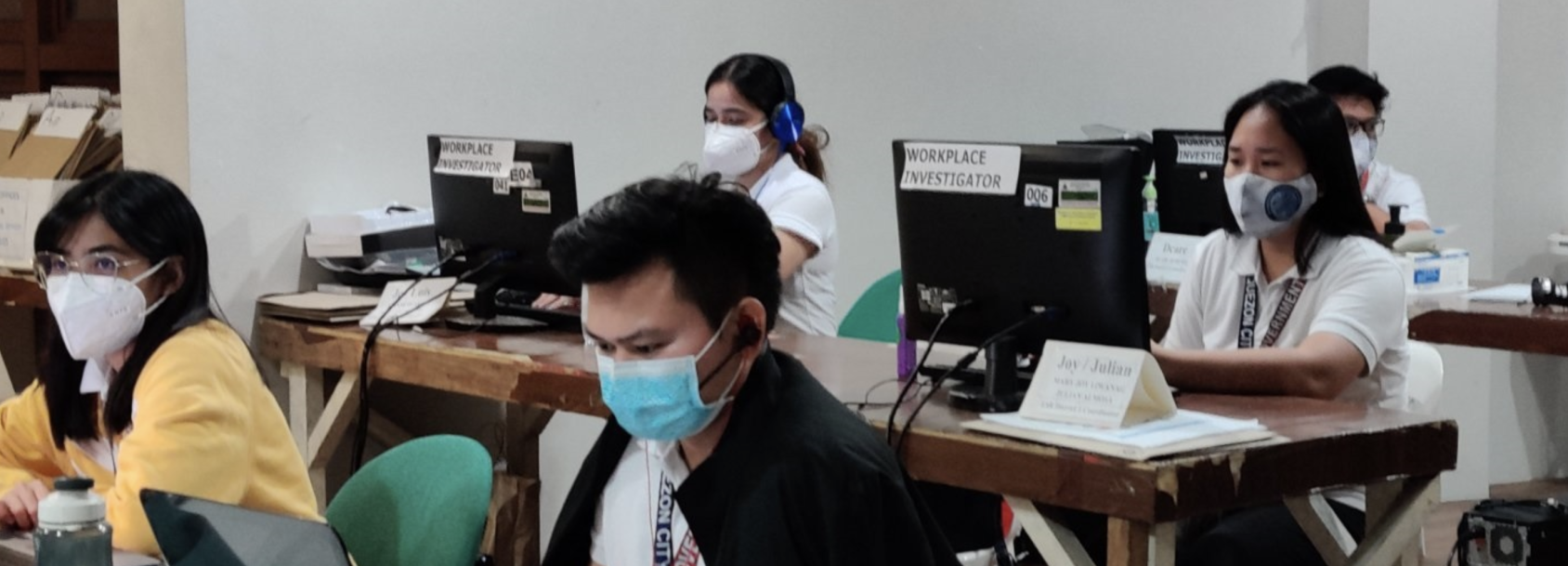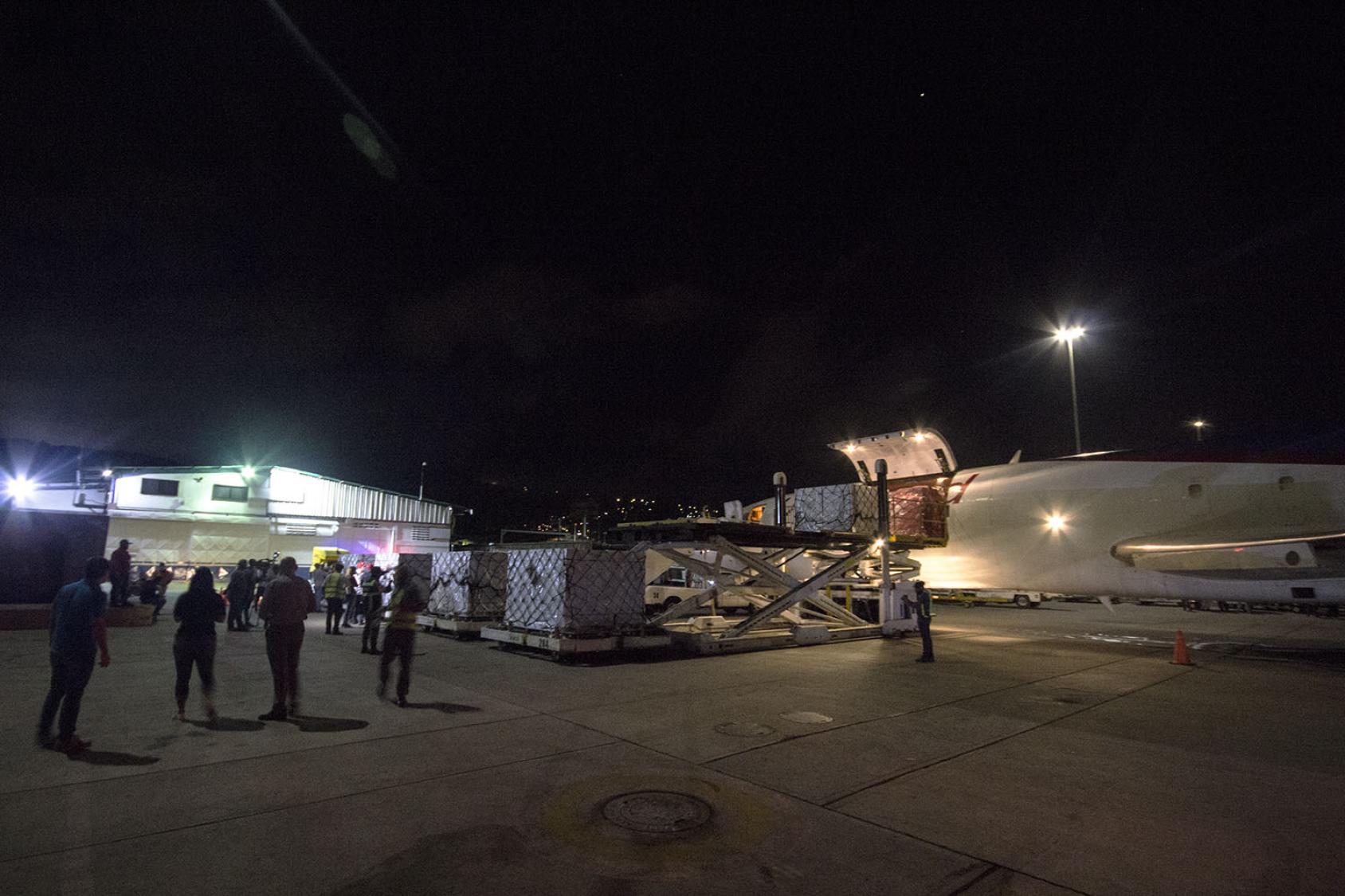Updates from the field #45: Combatting the multifaceted impacts of COVID-19
UN country teams worldwide are showing up in the fight against COVID-19. Below, we highlight some of the recent coordinated efforts.
COVID-19
Guinea
8 September - Our UN in Guinea, under the leadership Resident Coordinator Vincent Martin, is coordinating support to national authorities in responding to the COVID-19 crisis, including engagement with international partners such as the Economic Community of West African States (ECOWAS). Together with its collaboration on tackling the multifaceted impacts of the COVID-19 pandemic, the UN in Guinea is also continuing to support the Government in monitoring the Ebola situation, which was declared over three months ago.
Jordan
9 September - Our UN in Jordan team, led by Resident Coordinator Anders Pedersen continues providing support to the national COVID-19 response, contributing to the recruitment of 10 UN Volunteers to boost the capacity of a COVID-19 hotline for the vaccine. The team, including WHO and UNICEF, also trained staff to engage with vulnerable communities on the safety and efficacy of the COVID-19 vaccine, in line with the Verified campaign of the Secretary-General to combat misinformation as well as national campaigns to boost the number of vaccinated people. For its part, UNHCR contributed to the appointment of six medical specialists who are refugees to serve in hospitals across the country, boosting treatment capacity while creating employment opportunities for refugees.
Pakistan
1 September – Under the leadership of Resident Coordinator Julien Harneis, the UN team is continuing to support the government in responding to the multifaceted challenges of the pandemic. To boost prevention, testing, and treatment capacity, WHO established three vaccination centres in Islamabad and provided medical, laboratory and protective equipment, including ambulances, 50 ventilators, 100 oxygen concentrators, 50 suction devices, 20 ECG machines, and 50 automated beds. UNICEF provided protective equipment to 15,637 frontline workers as well as 3,065 oxygen concentrators and laboratory equipment to the Government, while UNHCR donated 600,000 masks and ambulances to the Government of Balochistan and UNOPS is providing medical and laboratory equipment for hospitals in three districts.
Peru
9 September – While continuing to provide support to national authorities in tackling the impact of the COVID-19 pandemic, including on the social, economic and health fronts, the UN in Peru team launched the UN Sustainable Development Cooperation Framework with the Government. This Framework serves as a roadmap for the work of the UN on the ground to support national initiatives accelerating progress towards the Sustainable Development Goals, as the UN and its partners are working to recover better together from COVID-19.
Philippines
2 September - Our UN team, under the leadership of the Resident Coordinator Gustavo Gonzalez, has enhanced its support to the Government, including on using digital tools for contact tracing in cities with high COVID-19 cases and in leading a multi-stakeholder risk communication and community engagement, particularly in responding to the spread of the Delta variant. On 30 August, the Philippines reported its highest number of daily cases since the beginning of the pandemic – 22,336, reflecting the impact of this Delta variant in the country.
Sri Lanka
15 September - In Sri Lanka, the UN team led by Resident Coordinator Hanaa Singer-Hamdy has been working with authorities, national and international partners to tackle the impacts of the pandemic, including through an accelerated vaccination drive. The UN team, including WHO and UNICEF, are providing technical advice as well as medical, testing and protective equipment to strengthen the healthcare system capacity. The UN in Sri Lanka is also ensuring an effective cold chain system is in place to support on-going vaccination initiatives. On the socio-economic front, the UN team is supporting distance learning for over 700,000 children, while establishing programmes to protect the livelihoods of more than 350,000 workers in the formal and informal sectors as well as addressing food security for over 200,000 people. In terms of risk communication support, the team worked with national authorities to develop and disseminate accessible materials in the three national languages, reaching over 16 million people.
Thailand
16 September - The UN team, led by Resident Coordinator Gita Sabharwal, is supporting authorities to boost vaccine confidence, especially amongst vulnerable groups, including the elderly and migrants. On the health response, WHO facilitated the upgrade of two laboratories, delivered over 30,000 pieces of protective equipment, and launched multi-lingual COVID-19 support hotlines for 2.8 million migrants. On the socio-economic front, UNODC is assisting correctional facilities and border systems, providing 1.5 million surgical masks to mitigate the spread of the disease among prison populations as well as similar personal protective equipment to border officials. For its part, UNICEF delivered more than 426,000 relief supplies and thousands of learning kits to vulnerable families while launching a new centre for children without parental care. The UN team is also supporting the Government in leveraging big data for advocacy and risk communication support, while WHO is organizing a campaign to tackle vaccine hesitancy and misinformation, including in southern border provinces.
COVAX
Colombia
14 September - Colombia received yesterday a new batch of COVAX-backed Sinovac vaccines, with over 2 million doses anticipated to roll out as part of the national vaccination plan. Over the weekend Colombia also received nearly one million doses of AstraZeneca vaccines donated by the Government of Spain through COVAX, bringing the total number of vaccines received via COVAX to over 5 million doses.
Costa Rica
7 September - Costa Rica received in the last few days nearly half a million doses of COVAX-backed AstraZeneca vaccines, of which 320,000 doses were donated by the Government of Canada, plus 70,000 doses donated by the Government of Spain in addition to over 86,000 purchased by the authorities through COVAX.
Guatemala
7 September - The country received nearly 170,000 doses of Pfizer COVID-19 vaccines last week, which brings the total number of doses received via COVAX to over half a million, in addition to other jabs purchased through bilateral agreements with different countries.
Nicaragua
14 September – Over the weekend, Nicaragua received nearly 200,000 doses of AstraZeneca vaccines, from Spain, through COVAX. This brings the total number of doses received via COVAX to over 830,000 in Nicaragua, with more on the way.
Pakistan
1 September - Pakistan received its first consignment of COVID-19 vaccines via the COVAX facility in May, with the Government receiving over 18 million doses of Astra Zeneca, Pfizer, Moderna, and Sinopharm vaccines to date and about 6 million more doses expected to arrive in September. As of 31 August, more than 56 million doses of the COVID-19 vaccine have been administered, which were used to inoculate over 25.7 million people partially and more than 17.3 million fully. The country also vaccinated 550 refugees.
Paraguay
14 September - On Sunday, the country received over 300,000 doses of AstraZeneca vaccines donated by Spain through COVAX.
Peru
9 September - Peru received yesterday over 360,000 doses of AstraZeneca COVID-19 vaccines through the COVAX mechanism. With this shipment, the country has received over 2 million doses through COVAX since March. Authorities announced that as of today more than 20 million doses have been applied in the country. Over 8.6 million people are fully vaccinated – with two doses – nearly 30 per cent of the total population.
Philippines

2 September - The Philippines has received more than 13 million COVID-19 vaccine doses from the COVAX Facility, with the country administrating over 30 million jabs as of 22 August. Of the priority groups, 13.1 million persons are fully vaccinated, while 17.3 million have received their first dose.
Sri Lanka
15 September - More than 3.3 million doses of COVID-19 vaccines have arrived in the country through the COVAX Facility, contributing to the country’s vaccination drive. So far, 60 per cent of the total population has received at least one dose of the COVID-19 vaccine. Close to 50 per cent have received two jabs.
Venezuela

8 September – Yesterday, Venezuela received its first COVAX shipment of COVID-19 vaccines, with nearly 700,000 doses of Sinovac vaccines. This is the first of several COVAX deliveries to immunize approximately 20 percent of the country's total population, including priority groups. This batch complements more than 9 million vaccine doses Venezuela received via bilateral agreements, with over 5.8 million people having received a first dose.





































